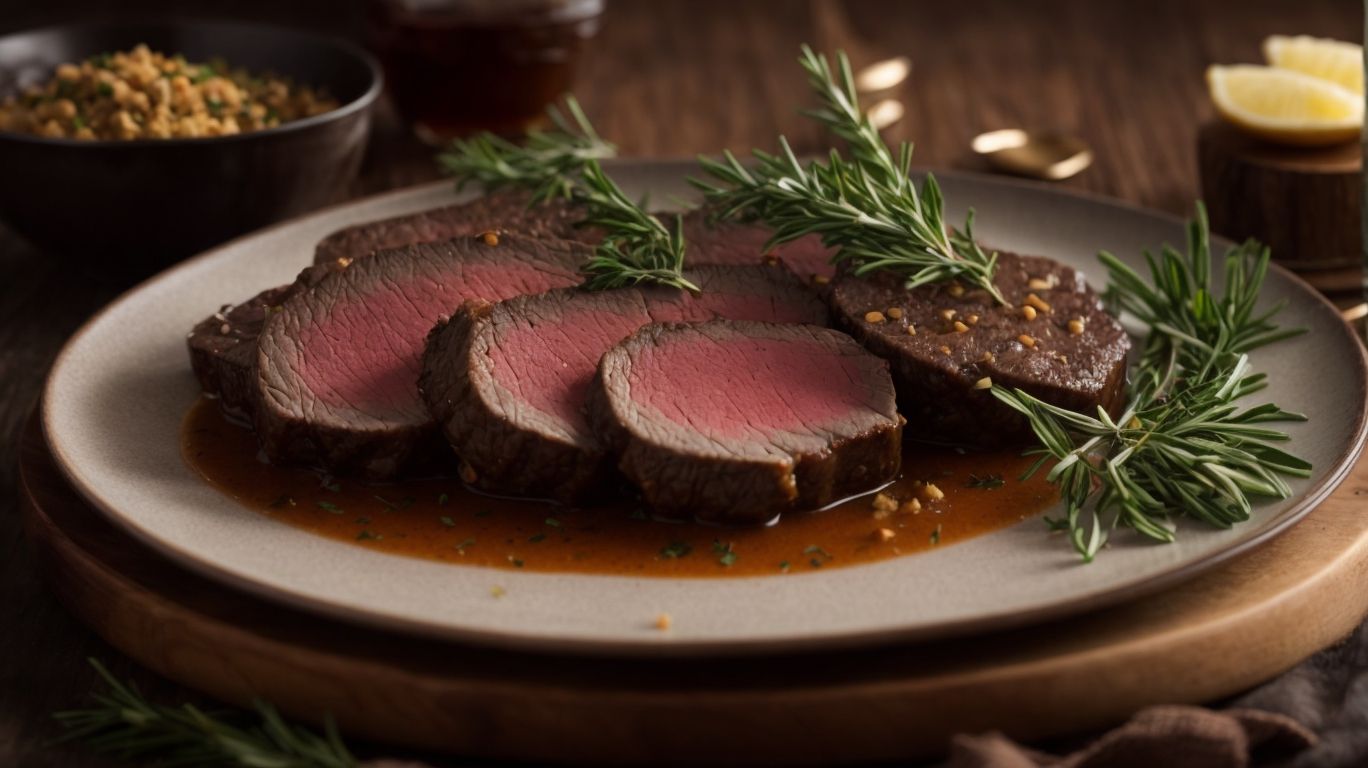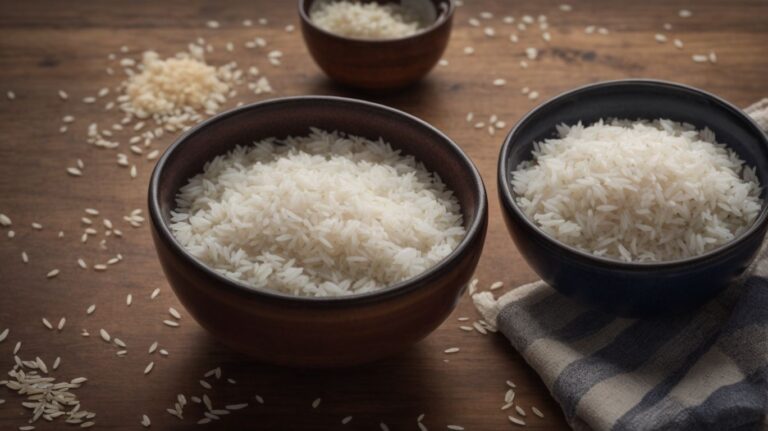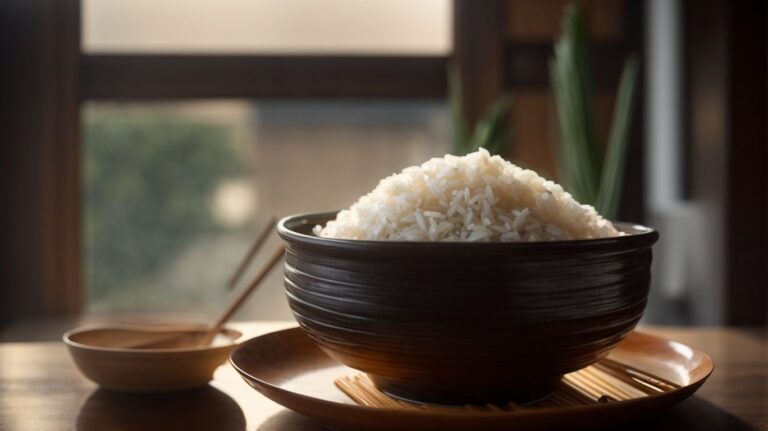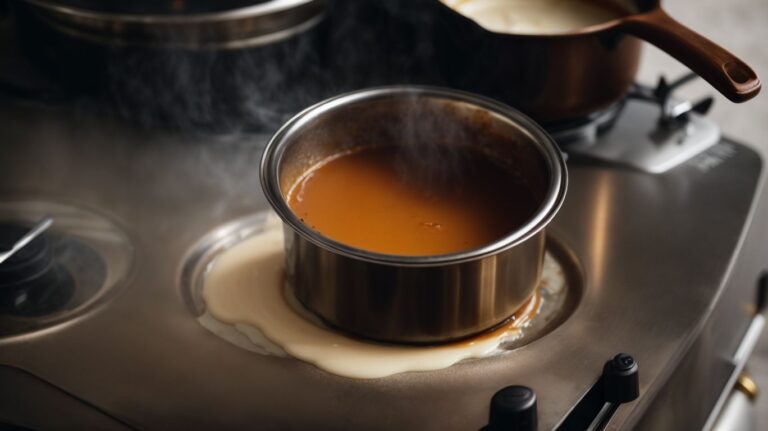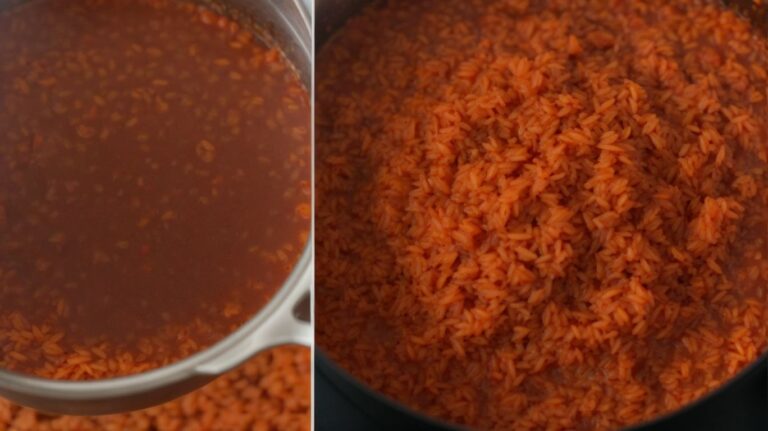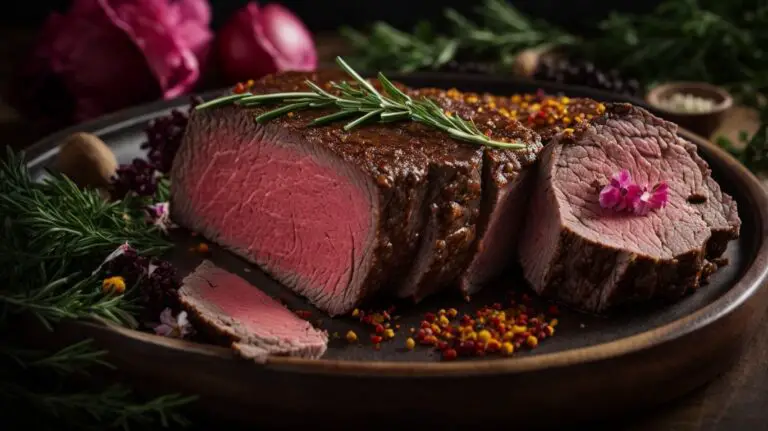How to Cook Venison Without Gamey Taste?
Are you a fan of venison but put off by its strong gamey taste?
We will explore what venison is, why it has a gamey taste, and most importantly, how to remove that gamey flavor.
Discover methods like soaking the meat in milk, using acidic ingredients, and strong flavors to make your venison dishes more palatable.
Learn tips on cooking venison without the gamey taste, experiment with different cooking methods and recipes to elevate your culinary skills!
Key Takeaways:
What is Venison?
Venison refers to the meat of a deer, often known for its lean and flavorful characteristics.
Deer meat comes from various species of deer, including elk, moose, and reindeer. It is highly appreciated for its distinctive taste, which is often described as rich, earthy, and slightly sweet. The lean nature of venison makes it a popular choice for health-conscious individuals looking for protein-rich alternatives to traditional meats. When cooked properly, venison can be tender and succulent.
In culinary circles, venison is widely celebrated for its versatility. It can be prepared in various ways, such as roasting, grilling, or even used in stews and sausages. Its distinct flavor pairs well with a range of herbs and spices, allowing for creative culinary experimentation. Game enthusiasts and chefs appreciate the unique challenge that comes with cooking venison to perfection, as it requires a delicate balance to retain its tenderness while enhancing its natural flavors.
Why Does Venison Have a Gamey Taste?
Venison has a gamey taste due to the diet and lifestyle of deer, which influence the flavor profile of the meat.
When deer roam freely in the wild, foraging on a varied diet of grass, herbs, berries, and acorns, their food choices directly impact the taste of their meat. The natural flavors and aromas from their environment seep into the muscles, giving venison its distinctive rich and earthy taste. The active lifestyle of deer, filled with daily movements and a lack of confinement, contributes to the development of lean, flavorful meat that sets it apart from conventionally raised livestock.
How to Remove the Gamey Taste from Venison?
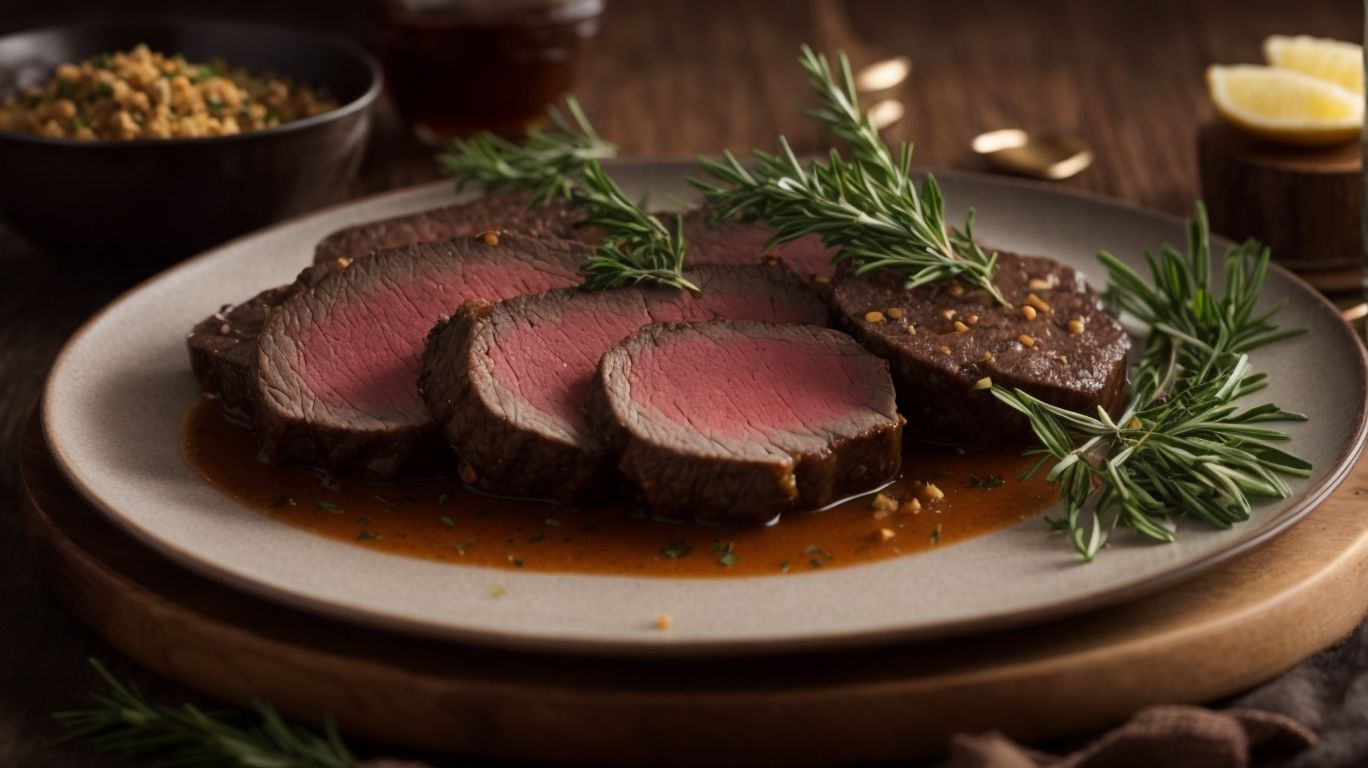
Credits: Poormet.Com – Alan Brown
When preparing venison, it’s crucial to address the gamey taste through various techniques like soaking the meat and using acidic ingredients.
Soak the Meat in Milk
Soaking venison in milk can help neutralize the gamey flavors and tenderize the meat for a more palatable dish.
When you soak the venison in milk, the lactic acid present in the milk works wonders in reducing the strong flavors commonly associated with wild game. This method not only helps in making the meat more tender but also draws out any blood or impurities that might affect the taste.
The milk acts as a natural marinade, infusing the meat with subtle flavors and moisture, resulting in a juicier and more flavorful final product. Many chefs swear by this age-old technique for turning tough cuts of venison into a culinary delight.
Marinate the Meat
Marinating venison with flavorful ingredients can enhance its taste and mask the gamey undertones effectively.
In terms of marinating venison, you have a wide array of options to choose from.
- One popular technique is using a red wine-based marinade, which not only tenderizes the meat but also imparts a rich, complex flavor.
- Alternatively, you could opt for a citrus-based marinade to add a refreshing zing to the venison.
- For those who prefer a more robust flavor, a coffee-based marinade can work wonders in creating a savory depth.
Experimenting with different combinations of spices like garlic, rosemary, thyme, and juniper berries can further elevate the taste profile of the venison, ensuring a tender and flavorful outcome.
Use Acidic Ingredients
Incorporating acidic components like vinegar or lemon juice in venison recipes can help counterbalance the gamey taste and add brightness to the dish.
Acidic ingredients play a crucial role in venison preparation due to their ability to tenderize the meat, making it more palatable and tender. The acidity breaks down tough muscle fibers, resulting in a juicier and more flavorful end product. The acidic tang can cut through the richness of the venison, creating a well-balanced flavor profile that appeals to a wider range of palates. When used in marinades, acidic elements not only enhance the taste of the meat but also contribute to its overall texture and juiciness.
Add Strong Flavors
Enhancing venison with robust and bold flavors can help mask the gamey notes and create a more savory culinary experience.
In terms of cooking venison, spices and seasonings play a pivotal role in transforming the meat into a delectable dish. The use of strong and aromatic seasonings such as rosemary, thyme, juniper berries, and black pepper can add layers of complexity to the flavors, enhancing the overall taste profile. These bold flavors not only complement the richness of venison but also help in balancing out any inherent gaminess that might be off-putting to some palates.
By carefully selecting the right combination of seasonings, you can elevate the taste of venison to a whole new level. Whether you prefer a marinade, rub, or sauce, incorporating flavorful spices can bring out the best in this lean and nutritious meat. Experimenting with different herbs and spices allows you to customize the dish to suit your preferences and create a culinary masterpiece that tantalizes the taste buds.
Tips for Cooking Venison Without Gamey Taste
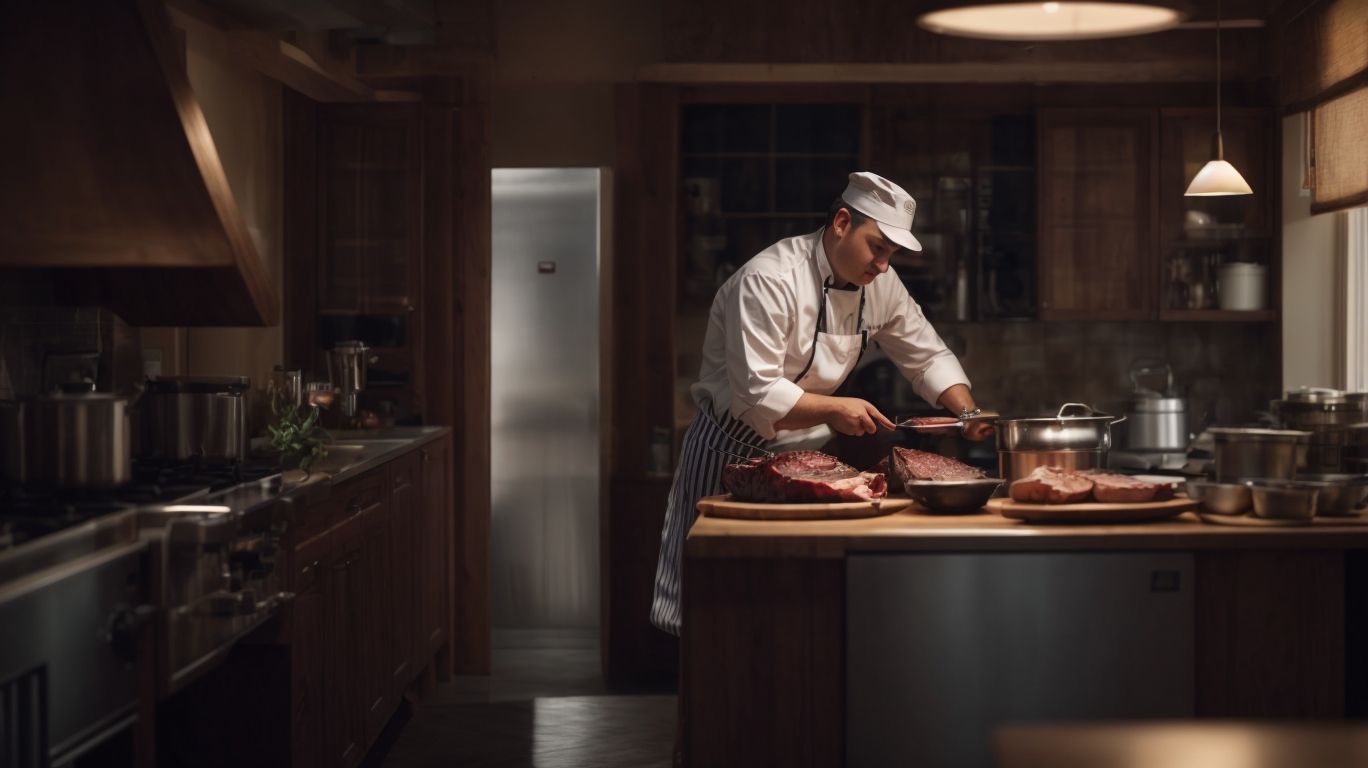
Credits: Poormet.Com – Henry Flores
When cooking venison to avoid gamey taste, consider tips like cooking rare, using high heat, and selecting appropriate seasonings for a delightful dish.
Cook the Meat Rare or Medium-rare
Opting for rare or medium-rare cooking levels when preparing venison steaks or tenderloin can preserve the meat’s natural flavors and tenderness.
When you cook venison to rare or medium-rare, you allow the meat to maintain its juiciness and delicate texture, making each bite a delightful experience. Venison, being a lean meat, tends to dry out quickly if overcooked; however, by cooking it to these optimal doneness levels, you ensure a succulent and flavorful dish.
For venison steaks, a quick sear on high heat is recommended, followed by finishing in the oven to achieve the desired doneness. This method locks in the juices while creating a beautiful crust on the outside.
Similarly, cooking venison tenderloin to rare or medium-rare involves careful attention to avoid overcooking. It’s important to let the meat rest after cooking to redistribute the juices evenly, resulting in a tender and juicy cut.
Use High Heat
Applying high heat to venison during cooking can help sear the meat quickly, locking in juices and flavors while reducing gamey taste.
When the meat is seared at high temperatures, the outer layer caramelizes, creating a delicious crust that seals in the natural juices and enhances the overall taste.
This process not only retains the inherent flavors of the venison but also plays a crucial role in reducing the distinctive gaminess that some find off-putting.
By searing the meat efficiently, you elevate the dish to a whole new level of succulence and tenderness while ensuring a more balanced and refined flavor profile.
Don’t Overcook the Meat
Avoiding overcooking venison is essential to prevent dryness and maintain the meat’s natural tenderness and flavors.
One common mistake many people make when cooking venison is overestimating the cooking time needed for this lean meat. Since it is leaner than beef, it cooks faster and can easily become dry and tough if overcooked.
Using high heat for an extended period can also lead to overcooking. It’s important to remember that venison is best cooked at lower temperatures to preserve its tenderness.
Another often overlooked point is the importance of allowing the meat to rest after cooking. Resting allows the juices to redistribute within the meat, resulting in a more succulent and flavorful dish.
Use a Meat Tenderizer
Utilizing a meat tenderizer can help break down tough muscle fibers in venison cuts like tenderloin, ensuring a more tender and enjoyable eating experience.
When dealing with venison, the meat can be quite lean and sometimes lacking in natural fats that contribute to tenderness. The use of a meat tenderizer not only helps to physically break down the muscle fibers but also allows for better penetration of marinades and seasonings, enhancing the overall flavor profile. Tenderizing venison cuts can aid in reducing cooking time, ensuring that the meat remains juicy and succulent without becoming overly tough or chewy. This simple tool can truly transform the texture and taste of your venison dishes, making them a delightful treat for any meal.
Don’t Mix Venison with Other Strong Flavored Meats
Avoid combining venison with strongly flavored meats like beef to preserve the distinct taste and characteristics of deer meat in your dishes.
When working with venison, it’s essential to let the flavors of the delicate meat shine through. Mixing it with overpowering meats can mask its unique taste, leading to a loss of the essence that makes venison so special. By keeping the focus on venison itself, you allow its naturally rich, slightly gamey flavor to be the star of the show. This way, you can fully appreciate and savor the nuances that set venison apart from other types of meat.
Conclusion
Experimenting with different cooking methods and recipes can help you unlock the full potential of venison, turning gamey challenges into culinary triumphs.
In terms of venison, its rich flavor and lean nature provide a unique culinary experience for those willing to dive into the world of game meats. Embracing the varietal nuances of venison can open up a whole new realm of taste exploration in your kitchen. Experimentation is key when working with this protein, as different techniques like marinating, slow cooking, grilling, or even sous vide can transform its taste and texture.
By being open to trying out diverse recipes and methods, you can discover how to balance the robust depth of venison with complementary flavors and ingredients, creating dishes that delight your palate and impress your guests. Don’t shy away from the gaminess – embrace it with creativity and curiosity!
Experiment with Different Cooking Methods and Recipes
Venture into the realm of culinary experimentation with venison by trying out various cooking methods and recipes to discover new flavors and textures.
Embracing the versatility of venison opens up a world of possibilities in the kitchen. From tender venison steaks seared to perfection in a cast-iron skillet to succulent venison roasts slow-cooked in a savory broth, the options are endless.
Exploring different flavor profiles such as aromatic herbs, citrus marinades, or robust spices can elevate the natural richness of venison, creating delectable dishes that tantalize the taste buds. Whether you prefer classic recipes or innovative culinary creations, venison offers a unique canvas for culinary creativity.
Frequently Asked Questions
How to Cook Venison Without Gamey Taste?
What are some tips for reducing the gamey taste in venison?
Marinating the meat, using acidic ingredients, and trimming off excess fat can all help reduce the gamey taste in venison.
How to Cook Venison Without Gamey Taste?
Can I use certain cooking methods to minimize the gamey taste in venison?
Yes, cooking methods such as slow cooking, smoking, or braising can help mellow out the gamey flavor in venison.
How to Cook Venison Without Gamey Taste?
Are there any specific spices or herbs that can help mask the gamey taste in venison?
Yes, herbs like rosemary, thyme, and sage, as well as spices like cumin, paprika, and chili powder, can add strong flavors that can help balance out the gamey taste in venison.
How to Cook Venison Without Gamey Taste?
Are there any techniques I can use while cooking to reduce the gamey taste in venison?
Yes, searing the meat before cooking, using a meat mallet to tenderize the meat, and incorporating some sweetness into the dish can all help minimize the gamey taste in venison.
How to Cook Venison Without Gamey Taste?
Is it necessary to remove the gamey taste in venison before cooking, or can it be done during the cooking process?
While marinating or using certain cooking methods can help reduce the gamey taste in venison, it’s best to try and remove as much of the gamey flavor as possible before cooking to achieve the best results.
How to Cook Venison Without Gamey Taste?
Are there any mistakes to avoid when trying to cook venison without the gamey taste?
Yes, overcooking the meat, not using enough seasoning, and not properly trimming the fat can all contribute to a strong gamey taste in venison.

